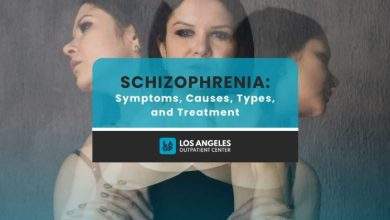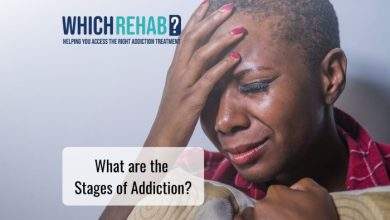
Teenage years can be a rollercoaster of emotions, changes, and challenges. As a parent or guardian, it’s natural to worry about your child’s well-being, especially when it comes to substance abuse. Drug addiction in teenagers is a growing concern, and the earlier it’s detected, the better the chances of intervention and recovery.
In this guide, we’ll walk you through the early warning signs of drug abuse in teens, behavioral and physical changes to watch out for, and what steps you can take if you suspect your teenager is struggling with addiction.
Understanding Teenage Drug Addiction
Teenagers experiment with drugs for various reasons—peer pressure, curiosity, stress relief, or even as a way to escape personal struggles. However, what starts as occasional use can quickly escalate into dependence.
Recognizing drug use symptoms in teens early is key to preventing long-term addiction and ensuring they get the support they need.
Physical Signs of Drug Addiction in Teens
While behavioral changes are a major red flag, physical symptoms can provide more concrete evidence of teen drug addiction. Look out for the following signs:
1. Bloodshot Eyes or Dilated Pupils
Different substances affect the eyes in distinct ways. For instance, marijuana use often causes red eyes, while stimulant drugs like cocaine can lead to dilated pupils.
2. Frequent Nosebleeds or Sniffling
Drugs like cocaine or inhalants can cause nosebleeds and persistent sniffles. If your teen often complains of nasal issues without having allergies, consider it a warning sign.
3. Unexplained Weight Loss or Gain
Many drugs suppress appetite, leading to sudden weight loss, while others can cause increased hunger and weight gain. Dramatic fluctuations in body weight should never be ignored.
4. Poor Hygiene and Neglect of Appearance
A teen battling drug addiction may stop caring about their grooming habits. Messy hair, bad breath, and body odor are often signs that something is amiss.
5. Unusual Smells on Clothing or Breath
If your teenager frequently smells like alcohol, marijuana, or chemicals, they might be using substances. Trust your instincts and ask questions if something seems off.
Behavioral Changes That Signal Drug Use
One of the first red flags of teen drug abuse is a sudden change in behavior. If your teenager is acting differently than usual, it might be worth taking a closer look. Here are some common behavioral warning signs:
1. Sudden Mood Swings and Irritability
Drugs can alter brain chemistry, leading to noticeable emotional changes. Your once cheerful and outgoing teen might become withdrawn, aggressive, or excessively moody.
2. Loss of Interest in Hobbies and Activities
A teen struggling with substance abuse may no longer show enthusiasm for hobbies, sports, or social activities they once enjoyed. If they’re frequently skipping practice, quitting clubs, or withdrawing from friends, it might indicate a deeper issue.
3. Secretive or Deceptive Behavior
If your teenager starts lying about their whereabouts, avoiding eye contact, or becoming overly defensive when questioned, it could be a sign they’re hiding something, such as drug dependency.
4. Sudden Drop in Academic Performance
A significant decline in grades, missed assignments, or increased absences can be warning signs of teen substance use. Drugs impair concentration and motivation, making it harder for teens to keep up with school responsibilities.
5. Changes in Friend Groups
New, unfamiliar friends—especially those who seem to engage in risky behavior—could be influencing your teen. If your child distances themselves from old friends, it’s worth investigating why.
Psychological and Emotional Warning Signs
Besides physical and behavioral symptoms, addiction also takes a toll on mental health. If your teen exhibits any of these mental health warning signs, it could indicate substance abuse disorder:
- Increased Anxiety or Depression – Many teens turn to drugs to cope with stress, anxiety, or depression.
- Paranoia or Hallucinations – Some substances can cause hallucinations, paranoia, or erratic thoughts.
- Lack of Motivation – Drug use often results in a lack of ambition or interest in the future.
- Extreme Fatigue or Hyperactivity – Stimulants can make a teen overly energetic, while depressants can cause excessive sleepiness.
What to Do If You Suspect Drug Use
If you recognize several of these warning signs in your teenager, don’t panic—but don’t ignore them either. Here’s what you can do:
1. Open the Lines of Communication
Start by having an honest, non-judgmental conversation with your teen. Express your concerns calmly and let them know you’re there to support them, not punish them.
2. Monitor Their Behavior
Keep track of their habits, social circles, and school performance. If things worsen, it may be time to seek professional help.
3. Seek Professional Help
If your teen is struggling with drug addiction, don’t hesitate to reach out to a counselor, therapist, or addiction specialist. Early intervention can make a huge difference.
4. Set Boundaries and Offer Support
Establish clear rules and consequences, but also offer emotional support. Let them know you believe in their ability to recover.
5. Educate Yourself About Substance Abuse
The more you understand about teen drug addiction, the better equipped you’ll be to help your child navigate this challenging time.
Final Thoughts: Early Detection Can Save Lives
Recognizing the early signs of drug addiction in teenagers is crucial for their well-being and future. If you suspect your teen is using substances, take action immediately. Your involvement, love, and support can make all the difference.
If you need assistance, consider reaching out to a local addiction recovery center, school counselor, or hotline for guidance. You are not alone in this fight, and neither is your teen.




